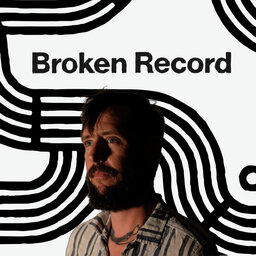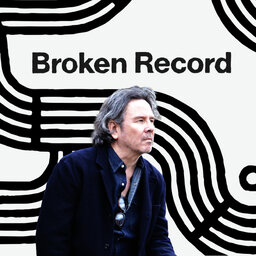Moby never stops working. His first taste of mega-success came in the early aughts after the release of his multi-platinum album, Play. In the years since, he's released 19 more studio albums including his latest, Resound, NYC, where he re-orchestrates songs he recorded between 1994-2010.
Moby has also spent a good deal of the last two decades unpacking his own unconventional upbringing and his meteoric rise to fame. He’s released two extensive memoirs, and he recently directed “Punk Rock Vegan Movie,” which explores the connection between two of his greatest passions: punk rock and animal rights.
On today’s episode Leah Rose talks to Moby about his compulsive desire to make music and why he’s cut out nearly all IRL socialization as a result. Moby also reminisces about the massive party pad he bought in upstate New York that led to years of all-out debauchery.
You can hear a playlist of some of our favorite Moby songs HERE.
 Broken Record with Rick Rubin, Malcolm Gladwell, Bruce Headlam and Justin Richmond
Broken Record with Rick Rubin, Malcolm Gladwell, Bruce Headlam and Justin Richmond


